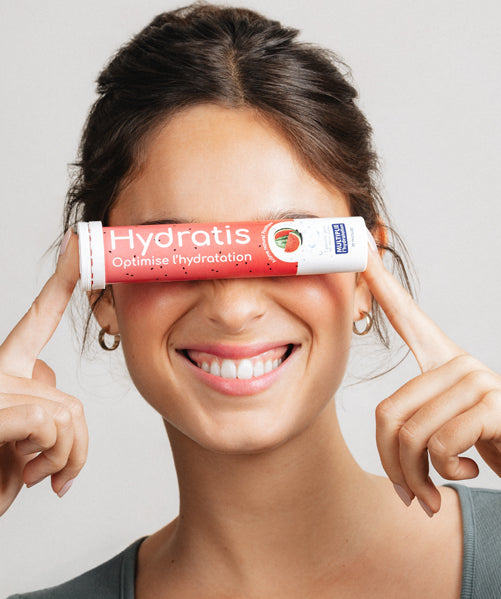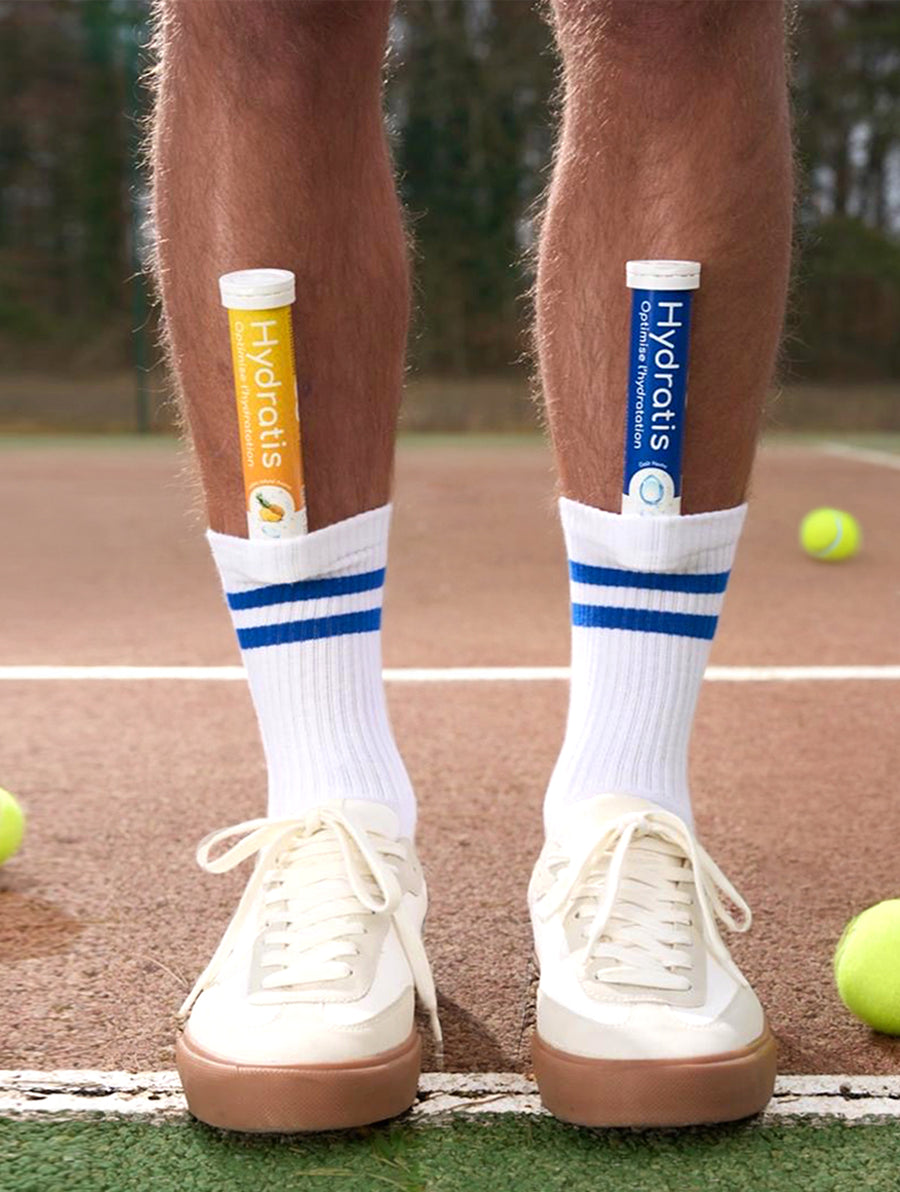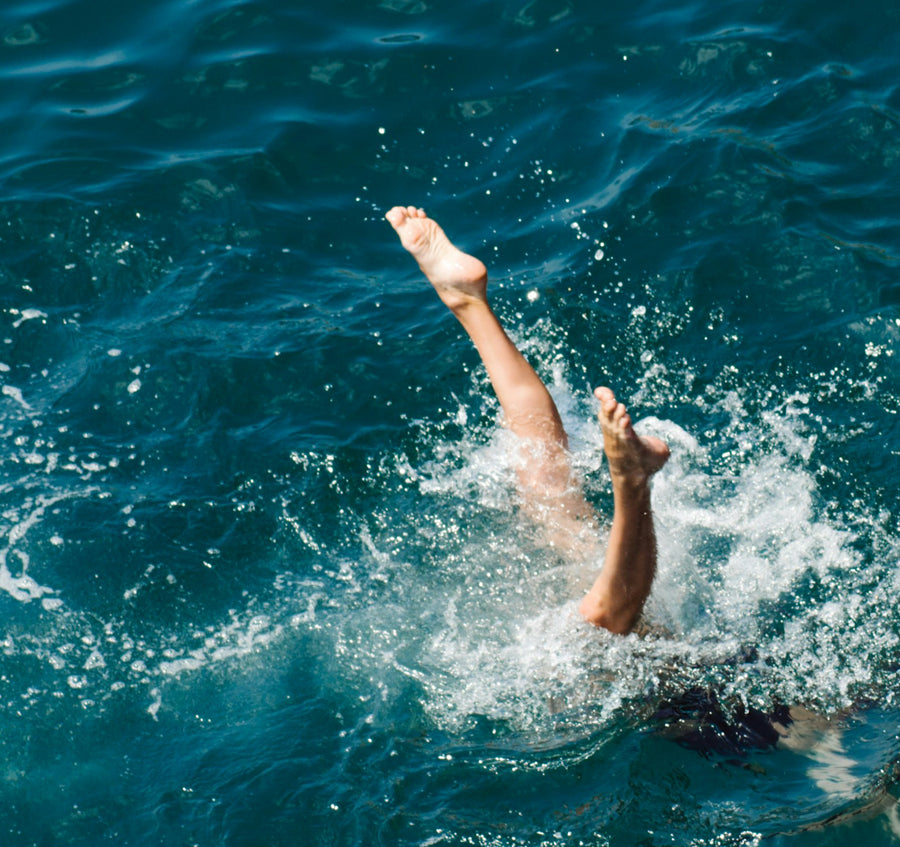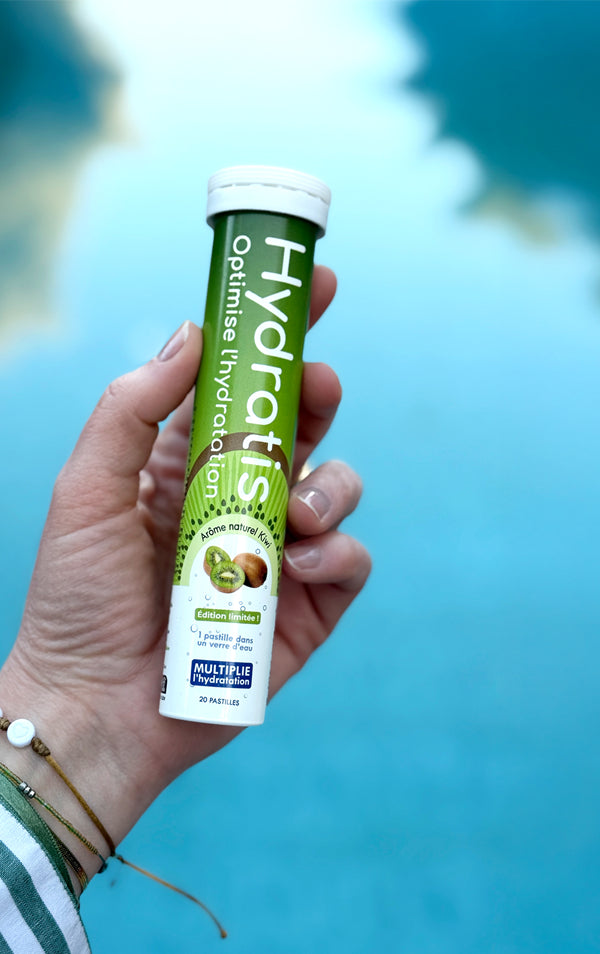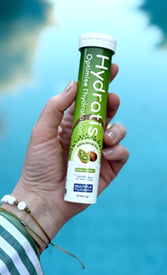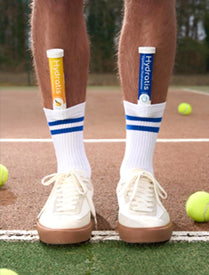Hydration plays a fundamental role in maintaining the health of infants . Still fragile, their bodies do not efficiently regulate water loss and depend entirely on external sources to maintain a proper balance.
Between heat, fever or episodes of diarrhea , dehydration can quickly become a real danger.
In this article you will discover what a baby's water needs are, the warning signs to watch for and simple steps to ensure sufficient hydration at each stage of their growth.
Why monitor hydration in babies?
A baby's body is largely composed of water (approximately 80%) . However, its still-developing body cannot efficiently store or regulate fluids, hence the need to closely monitor its fluid intake .
Each day, the amount of fluid consumed must compensate for natural losses due to respiration, perspiration, and elimination (urinary and digestive). Insufficient hydration , even mild, can quickly lead to:
- Fatigue ;
- Constipation;
- Digestive problems.
The baby: an organism that is still immature
A baby's renal system is not yet fully mature. In fact, their kidneys filter less efficiently than an adult's, resulting in a more rapid loss of fluids.
Furthermore, since its skin is much thinner and more permeable, it allows more water to escape through evaporation, especially in cases of heat or fever.
The main causes of dehydration in babies
Knowing the causes of dehydration in your child allows you to take appropriate steps to protect their health.
- Diarrhea : This is one of the most frequent causes of dehydration in infants. It causes a loss of water and mineral salts, essential for the baby's well-being;
- Vomiting : when repeated, it prevents the child from retaining breast milk or formula. This results in a reduction of fluid and nutrient intake;
- Fever : it increases body temperature and promotes faster evaporation of water through the skin;
- Excessive sweating : in periods of intense heat, the baby loses water without always showing obvious signs. Their body, still unable to properly regulate temperature, dries out quickly;
- Aggravating factors : certain situations such as insufficient food intake or certain illnesses (flu, bronchiolitis, urinary tract infection, childhood diabetes, etc.) can cause acute dehydration .

Signs of dehydration in infants
A fluid deficit or dehydration can manifest itself in several ways, sometimes subtle at first. Carefully observing your baby's behavior often allows you to detect the first signs .
The decrease in urine production
A well-hydrated baby wets several diapers a day, proof that their body is properly eliminating fluids. Conversely, a dehydrated baby urinates much less frequently than usual.
In this case, you will notice that her diapers remain dry for more than 4 to 6 hours. The urine then becomes darker and has a stronger odor because it is more concentrated.
Significant weight loss
A significant water deficit also leads to a rapid decrease in body weight , as the baby's body loses mostly water.
In toddlers, a loss of 5% of total weight already signals moderate dehydration, while a loss greater than 9% reveals a severe form , requiring urgent medical consultation .
Appearance of the fontanelles
Fontanelles are the small soft areas located on the top and back of a baby's head. When the baby is well hydrated, they are slightly bulging and soft to the touch.
On the other hand, when they appear hollow or sunken, this indicates significant dehydration .
Unusual behavior
Changes in behavior are often an early sign of dehydration. In mild to moderate cases, the newborn may appear tired , lethargic, or unusually irritable .
As the situation worsens, drowsiness increases. He therefore becomes difficult to wake up, less responsive , or even lethargic .
Other physiological signs of dehydration in infants
Other physical manifestations can also reveal a fluid deficiency in the baby:
- Cold extremities,
- No tears,
- Dry mucous membranes,
- Marbled skin,
- Heart problems.
Skinfold test
This simple test allows for a quick assessment of the child's condition: it consists of gently pinching the skin of the stomach or arm between two fingers.
In a well-hydrated baby, the skin immediately returns to its original shape. In cases of mild to moderate dehydration , it can take up to two seconds to fully tighten.
In very severe cases, the skin fold persists for more than two seconds, or even remains marked. This lack of elasticity indicates a critical level of hydration .
Recommended water quantities according to age
The amount of water needed varies over the months, as hydration requirements change with a child's growth. Here is an overview of recommendations for the amount of water to drink at each stage of development.
|
Age |
Recommended water quantity |
|
0-6 months |
Breast milk or formula (sufficient hydration) |
|
6-12 months |
50 to 100 ml of water per day, in addition to milk |
|
1-3 years |
400 to 700 ml of water per day |
|
4-8 years old |
800 to 1200 ml per day |
How to keep a baby hydrated on a daily basis?
While hydration is an important aspect of infant nutrition, it is still necessary to know how to proceed, especially if they are reluctant to drink or if you are looking for other alternatives.
Tips for babies who are reluctant to drink
If your baby is reluctant when you try to give them water, here are some practical solutions to try:
- Frequent small sips : offer water in several small amounts throughout the day;
- Bottle vs spoon vs sippy cup : adapt the feeding method according to the child's preferences;
- Lightly flavored water : for babies who refuse plain water, you can offer water very lightly flavored with fruit.
Water alternatives
In addition to water, there are other alternatives that can contribute to a baby's hydration. On the one hand, there is breast milk or infant formula, which provide the essential nutrients for their growth.
On the other hand, there are fruit juices . Diluted to a maximum of 1/3 and suitable for slightly older babies, a small amount of highly diluted juice can supplement their fluid intake.
We advise you to seek the advice of your pediatrician before making any changes to your infant's routine!
Hydrating foods
To supplement fluid intake, certain water-rich foods are also recommended. These include:
- Compotes,
- Vegetable purees,
- Fruits rich in water,
- Light soups for older babies.
Hydrating a sick or feverish baby

For a sick or feverish baby, the use of oral rehydration solutions This temporarily helps to replenish lost water and minerals. Offer small, frequent portions rather than large amounts all at once.
Furthermore, it is also important to know how to recognize the signs that require prompt consultation with a specialist.
If the baby has a dry mouth , unusual fatigue or a sunken fontanelle , or if the fever persists accompanied by vomiting, you shouldconsult a doctor immediately to avoid any worsening of the condition.
Oral rehydration solutions (ORS): how and when to use them?
It is essential to have at home Rehydration solutions , rich in bicarbonates , carbohydrates and mineral salts , which allow for rapid rehydration of the child in case of vomiting or diarrhea.
During the first few hours, as instructed by the pediatrician, these solutions should be the only drink given, as water alone could cause vomiting.
They come in powder form to be dissolved in the baby bottle of water. After mixing, the mixture is colorless.
Breastfeeding mothers can also use them to support their own hydration, always after consulting a doctor.
Furthermore, adequate hydration also involves a few simple steps: after bathing, apply a suitable body lotion. Make sure that baths are neither too long nor too hot to avoid skin dehydration.
FAQ – Common questions from parents
When should I start giving my baby water?
Water can be introduced gradually from six months of age, in addition to breast milk or infant formula.
My baby refuses to drink, what should I do?
Offer small sips frequently, use a bottle, a spoon or a sippy cup according to their preferences, and possibly water lightly flavored with diluted fruit.
What are the risks of prolonged dehydration?
Prolonged dehydration can lead to fatigue, irritability, weight loss, digestive problems, or serious complications if not addressed promptly.
Is tap water safe for my baby?
In most areas, tap water is safe after boiling. It is advisable to check locally if you have any doubts about the water quality.
How can I tell if my baby is getting enough hydration?
A well-hydrated baby urinates regularly. It has healthy-looking skin and slightly bulging, soft fontanelles.
Conclusion
Sufficient fluid intake plays a fundamental role in the well-being and development of toddlers. Whether it's milk, water, or foods rich in liquid, every little bit helps to maintain good fluid balance.
By adjusting the quantities, offering regular intake and remaining attentive to signs of dehydration , parents can protect their child from the risks associated with dehydration.
Bibliography
Hubert, P. (2008). Acute dehydration in infants. Journal of Pediatrics and Childcare , 21 (3), 124-132. https://doi.org/10.1016/j.jpp.2008.03.005
Doumbia, AK, Coulibaly, O., Dembélé, A., Diall, H., Togo, P., Cissé, ME, Ahamadou, I., Sacko, K., Maiga, B., Konaté, D., Diakité, FL, Traoré, F., Sidibé, LN, Doumbia, A., Maiga, AA, Kané, B., Diakité, AA, Dicko-Traoré, F., Sylla, M., ... Daou, S. (2020). Acute Dehydration in Children Aged 1 to 35 Months with Acute Diarrhea at Gabriel Touré University Hospital. www.hsd-fmsb.org . https://doi.org/10.5281/hsd.v21i11.2384
When to Give Water? | INSPQ . (n.d.-b). National Institute of Public Health of Quebec. https://www.inspq.qc.ca/mieux-vivre/alimentation/l-eau/quand-donner-de-l-eau
Cellucci, MF (2025, January 17). Dehydration in children . MSD Manual Professional Edition. https://www.msdmanuals.com/fr/professional/p%C3%A9diatrie/d%C3%A9shydratation-et-r%C3%A9hydratation-chez-l-enfant/d%C3%A9shydratation-chez-l-enfant
Water in Children . (n.d.). Medipedia. https://medipedia.be/fr/eau/comprendre/leau-chez-les-enfants
Online Thesis - Management of an Infant with Acute Dehydration - Karima Bounoua. (n.d.). Online Thesis. https://www.memoireonline.com/06/08/1158/prise-en-charge-nourrisson-deshydratation-aigue.html
